Phu Tho province has determined strong political determination and synchronously deployed many solutions to effectively implement Resolution No. 57-NQ/TW of the Politburo on science and technology development, innovation and digital transformation. The focus is on raising awareness, renewing thinking, promoting the exemplary role of leaders, and mobilizing the active participation of the whole society.
Many outstanding results in implementing Resolution 57
With a systematic, synchronous and drastic approach, Phu Tho province has achieved many outstanding results in implementing Resolution 57-NQ/TW in recent years. According to Mr. Nguyen Minh Tuong, Director of the Department of Science and Technology of Phu Tho province, in recent years, the province has invested heavily in digital infrastructure. To date, the whole province has more than 10,200 BTS stations with 3G and 4G coverage reaching 100%, and at the same time, 170 5G stations have been commercially broadcast.
The rate of smartphone usage has increased to 89%, and mobile and fixed broadband internet has been widely available throughout the province. The provincial data center is equipped with modern, highly secure facilities, ensuring information security in state management activities.
100% of agencies from provincial to communal levels have computers, LAN, broadband internet; online conference systems, data integration and sharing platforms operate stably.
Phu Tho focuses on building a synchronous digital database, connected with the national database on population, land, enterprises, social insurance, etc. The electronic database on administrative procedures and personal data helps people and businesses proactively manage, store, and conveniently transact online.
The province has issued many mechanisms and policies on education and training of high-quality human resources, attracting domestic and foreign talents to meet the requirements of the new situation. Currently, the Provincial Data Center has 68 highly qualified technical staff, some of whom have international certificates in information security.
Departments, branches and localities all arrange specialized information technology staff, and at the same time promote training, fostering and improving the capacity of staff, civil servants and public employees.
Thanks to strong investment in digital infrastructure and improving the quality of human resources, the province has successfully implemented digital transformation goals, especially in the political system. To date, the electronic document sending and receiving system has been deployed in 16 departments, branches, and 148 communes and wards with 28,226 user accounts.
Since the merger date, 100% of agencies and units have sent and received digitally signed electronic documents (except for confidential documents as prescribed). There have been 161,562 incoming electronic documents and 99,986 outgoing electronic documents issued on the National Document Interconnection Axis.
The administrative procedure settlement information system is deployed synchronously and uniformly in the province. The system provides 2,153 administrative procedures, of which 969 procedures are fully online public services; 1,184 procedures are partially online public services.
The rate of online application submission reached 88.01%, ranking 9th out of 34 provinces and cities. In particular, the video conferencing system was deployed smoothly from the provincial to the communal level and was frequently used.
Many sectors and fields in the province have effectively deployed digital technology applications such as the Provincial Police Department issuing more than 2.5 million level 2 electronic identification accounts; the Justice sector completing the digitization of household registration books; the Health sector deploying electronic medical records, applying AI in stroke diagnosis; the Education sector forming a smart education ecosystem; the Agriculture sector building a land database, applying QR codes in quarantine; the Tourism sector developing the smart tourism portal Myphutho.vn; the Tax sector deploying Etax Mobile and electronic invoices; the Home Affairs sector paying cashless social security... These achievements are important premises for Phu Tho to continue to make breakthroughs in the coming period, realizing the goal of becoming a leading locality in the development of science, technology, innovation and digital transformation, contributing to building a knowledge economy, digital society, digital government and digital citizens.
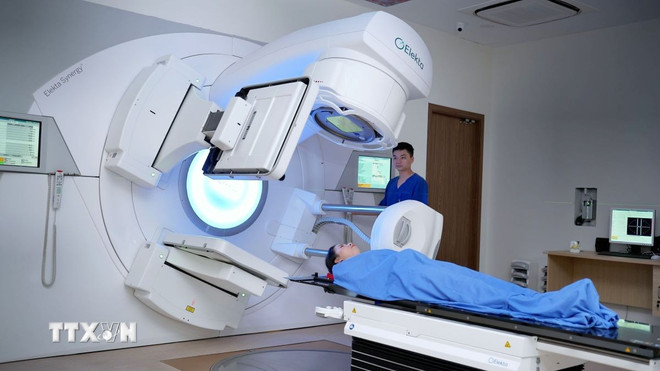
Key driving force for socio-economic development
According to the People's Committee of Phu Tho province, despite achieving some positive results in implementing Resolution 57-NQ/TW of the Politburo, the province is facing many difficulties and limitations. Currently, some commune and ward leaders are still lacking in determination in directing, leading to the progress and effectiveness of digital transformation implementation not meeting the expectations of the Provincial Party Committee and the Provincial People's Committee.
Meanwhile, the "Digital Literacy" movement has been widely deployed, but the spread of the spirit of innovation in thinking and action is still uneven among all levels and sectors.
Some regulations serving science, technology and innovation activities are not suitable for practice. Specifically, the handling of assets formed from science and technology tasks, the mechanism for transferring ownership of research results or financial policies and incentives for science and technology enterprises are still inadequate. This limits the ability to commercialize research results and does not create a strong enough motivation to attract investment from enterprises.
Although significant investments have been made in telecommunications and information technology infrastructure, it has not yet met actual needs due to the rapid pace of technological development and limited local resources. Some information systems are deployed in an unsynchronized manner, making it difficult to connect and share data from the central to local levels.
Human resources specialized in science, technology and digital transformation in the area are still limited and lacking. Many units and officers in charge of information technology mainly hold part-time positions, lacking conditions for intensive concentration, affecting the progress and quality of task implementation.
Notably, the province has not yet issued specific mechanisms and policies to attract high-quality human resources, experts and scientists to participate in support. Although the rate of online application submission is over 88%, among the top in the country, most of the applications are still directly supported by staff on behalf of people and businesses.
Mobilizing social resources for science and technology is still at the initial stage and has not spread widely; international cooperation is not effective due to the lack of mechanisms and policies for in-depth cooperation with foreign enterprises... According to Mr. Tran Duy Dong, Chairman of the Provincial People's Committee, to overcome difficulties, the province continues to synchronously deploy solutions to make science, technology, innovation and digital transformation become key driving forces for socio-economic development in the coming time.
In the immediate future, the province will step up regular and extensive propaganda on the content of Resolution 57-NQ/TW, considering this a continuous task to create changes in thinking and action. The responsibility of the head of a state agency is closely linked to the results of implementing the task of developing science, technology and digital transformation.
The movements of "Digital literacy" and "digital learning" will be materialized through practical programs, widely spread, improving digital knowledge for cadres, civil servants and people. The province will research and develop a set of criteria to assess the level of completion of digital transformation tasks, linked with the assessment of cadres, civil servants, public employees and leaders, ensuring clarity, transparency and encouragement.
Phu Tho will advise on the issuance of Resolutions of the Provincial People's Council related to investment in digital infrastructure, regulations on spending levels for science and technology tasks, and support for registration of intellectual property protection.
Localities build, review, and supplement mechanisms and policies to encourage businesses to invest in research and development (R&D), promote the digital economy and digital society, and at the same time strengthen decentralization and delegation of power in state management to create proactiveness and flexibility.
The province increased investment in digital infrastructure at the commune and ward levels; expanded 5G coverage; and enhanced laboratory capacity for the province's key products. Regarding human resources, the province proposed to include Hung Vuong University in the planning of a network of research-oriented training facilities, and proposed to build Phu Tho into a regional data center.
The province has a special mechanism to attract and reward high-quality human resources in digital transformation. Online training courses will be regularly organized for officials, civil servants and public employees.
Localities are stepping up the issuance of ID cards, activating VNeID accounts, cleaning up civil status data and synchronizing with the national population database. The use of electronic documents is gradually replacing traditional documents, moving towards an effective digital government model, convenient for people and businesses.
With the proposed solutions, Phu Tho province sets a target of having over 90% of online records processed by the end of 2025, while reducing at least 30% of administrative procedure time and costs. Databases on health, education, tourism, labor, land, planning, etc. will be completed and publicly announced on the internet./.
Source: https://www.vietnamplus.vn/nghi-quyet-57-dong-luc-then-chot-phat-trien-kinh-te-xa-hoi-tai-phu-tho-post1066300.vnp



![[Photo] President of the Cuban National Assembly visits President Ho Chi Minh's Mausoleum](https://vphoto.vietnam.vn/thumb/1200x675/vietnam/resource/IMAGE/2025/10/1/39f1142310fc4dae9e3de4fcc9ac2ed0)

![[Photo] Hanoi morning of October 1: Prolonged flooding, people wade to work](https://vphoto.vietnam.vn/thumb/1200x675/vietnam/resource/IMAGE/2025/10/1/189be28938e3493fa26b2938efa2059e)

![[Photo] Keep your warehouse safe in all situations](https://vphoto.vietnam.vn/thumb/1200x675/vietnam/resource/IMAGE/2025/10/1/3eb4eceafe68497989865e7faa4e4d0e)
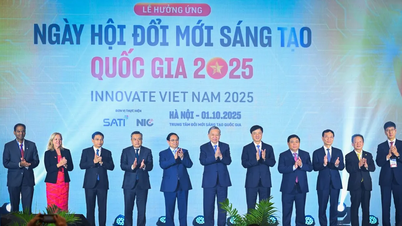



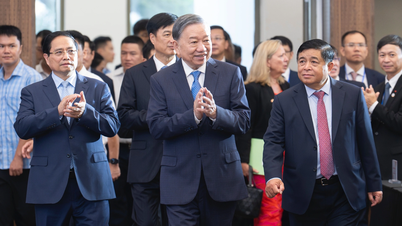

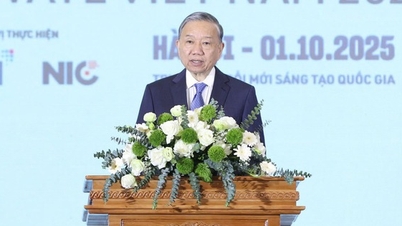





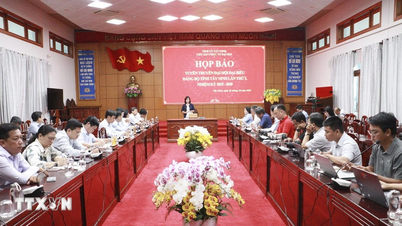
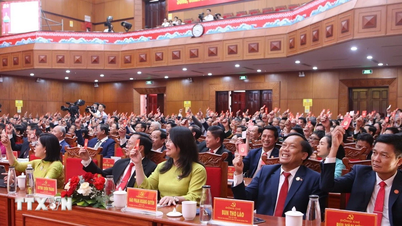
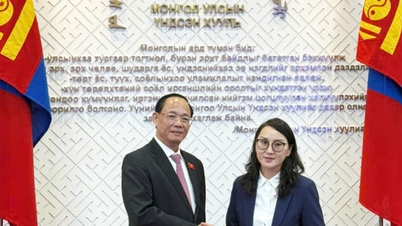

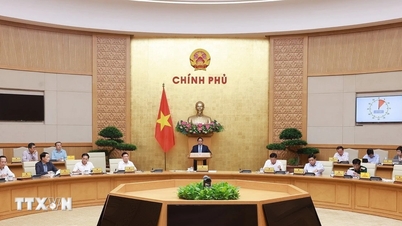







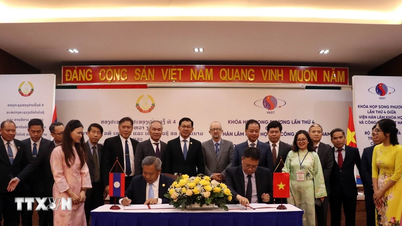


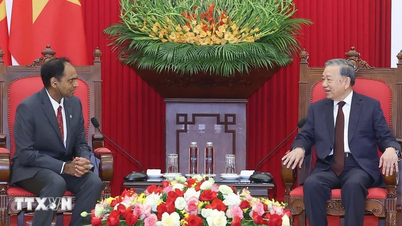
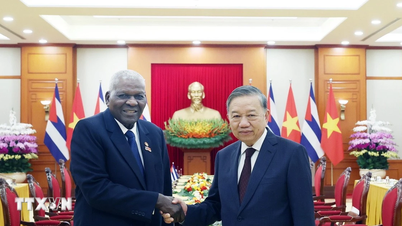










































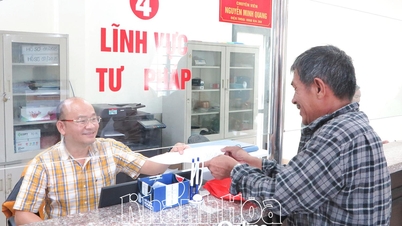
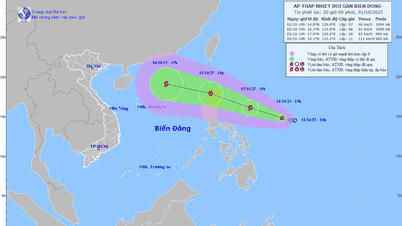

















Comment (0)